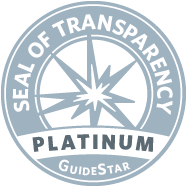Community
Nothing
surrounding the Wisconsin School for Beginning Dairy and Livestock
Farmers is ever a solitary effort. The School gives you access to a network of experienced pasture-based dairy and livestock farmers
with a passion for helping new farmers get started. Years after your
graduation, you’ll still be able to pick up the telephone and call the
friends you made at the school – students and instructors – for advice,
assistance, or even just to chat.
Locations
 The school has grown out of cooperation between the Farm and Industry Short Course program and the Center for Integrated Agricultural Systems
at the University of Wisconsin – Madison, a university considered by
many to have the finest agricultural tradition of any institution in
the country. Participating in the School for Beginning Dairy and
Livestock Farmers gives you all the opportunities afforded any other
student at the UW – including access to the top-notch athletic, library, and computer facilities on campus.
The school has grown out of cooperation between the Farm and Industry Short Course program and the Center for Integrated Agricultural Systems
at the University of Wisconsin – Madison, a university considered by
many to have the finest agricultural tradition of any institution in
the country. Participating in the School for Beginning Dairy and
Livestock Farmers gives you all the opportunities afforded any other
student at the UW – including access to the top-notch athletic, library, and computer facilities on campus.
A
distance education option allows students to enroll and participate via
live interactive webcast and audio feed at one of seven other Wisconsin
locations: Chilton, Frederic, Independence, Platteville, Reedsburg,
Thorp or Wausau.
A
local facilitator leads the distance education seminar at each site,
provides networking with area farmers and resource personnel, and
conducts a discussion session each week.
Contact information
Madison: Richard Cates, WSBDF Director, 608-265-6437 or 608-588-2836; rlcates@wisc.edu
Chilton: Jeremy Hanson, Fox Valley Technical College at the Chilton Regional Center, 920-849-4416; hanson@fvtc.edu
Frederic: Otto Wiegand, Uw-Extension, Washburn, Sawyer and Burnett Counties, 715-635-3506; otto.wiegand@ces.uwex.edu
Independence: Mary Anderson, River Country RC&D, 715-538-4396 ext. 33; mary.anderson@rcdnet.net
Platteville: Gretchen Kamps, UW-Platteville School of Agriculture, 608-342-1371; kampsg@uwplatt.edu
Reedsburg: Doug Marshall, MATC-Reedsburg, 608-524-7727; dmarshall@matcmadison.edu
Thorp: Marcia Bendixen, UW-Extension, Clark County, 715-743-5121; maria.bendixen@ces.uwex.edu
Wausau: Tom Cadwallader, UW-Extension, Lincoln and Marathon Counties, 715-539-1072 or 715-261-1240; TCadwallader@co.lincoln.wi.us
7) The Foundation Farm School
Foundation Farm school was born of a need: not enough food is grown
locally. Farmers around us are getting older and are not being
replaced. Over the last 50 years, there has been an increasing loss of
interest in small-scale farming, especially in America. This decay of
family farming has many, well documented roots, one being the
competition from “industrial agriculture” which pushes food prices (and
quality standards) down and monopolizes retail channels. The
disappearance of family farming explains in part why food travels
thousands of miles to reach us.
But we can fight back and turn the tide. There are ways and reasons to
return to small-scale farming and our farm school is as much a place to
learn as it is a chance to rediscover the joys of farming. We are
convinced that once aware of its possibilities, some people will choose
farming over other, more obvious, career choices.
If you are contemplating applying to the school, we recommend that you take a look at the rest of the site, especially at the virtual tour and the farm philosophy pages.
We are looking for 5 trainees interested in establishing their own farm in the near future. The school curriculum
will reflect this objective by teaching the tools necessary to start a
successful farm from ground zero. Classes cover the cultivation,
marketing and financial aspects of running a farm based of our
accumulated experience with Foundation Farm and previous farms.
If you are interested, please submit your application to us.
School Term:
The 2009 school year will start on Monday, March 16th and will extend
to Friday, October 30th for a total of 6 and 1/2 months. Students are
expected to join for the full term in order to cover the curriculum
and 3 growing seasons (Spring, Summer, Fall). There will be a formal
checkpoint-interview 1 month after joining, as well as an exit
interview on the last week of training.
School Facilities/Format:
Classes take place at the farm shed. Do not expect a formal classroom,
but expect a formal lecture involving notes-taking, and sometimes class
preparation. Classes happen usually on Mondays, following lunch, and
last about one hour.
Field instruction takes place at the farm in a very real-life,
professional context. Patrice Gros, owner/teacher, will be present
throughout the seasons to direct fieldwork.
Progressive Time Schedule & Stipend:
The school does not charge a tuition. A progressive stipend will be
paid weekly to offset some of the trainees’ personal expenses:
March/April/May: Monday, Wednesday & Friday, 9am to 1pm (allowance: $30/week)
June through October: Monday, Wednesday & Friday, 7am to 12pm (allowance: $60/week)
School “Normal” Weekly Schedule, starting in April:
Monday: In class instruction: 1 to 1 1/2 hour; field work: 4 to 5 hours
(variable start-times according to season. Field work is always
monitored and the object of in-the-field discussions between teacher(s)
and students.
Wednesday/Friday: Supervised field work: 4 to 5 hours (variable start-times according to season).
Tuesday/Thursday/Saturday (Optional): 4 hour participation to farmers’ market activity.
The school is designed as a part time activity allowing other life
activities such a work or other studies. The farm is only 15 minutes
from Eureka Springs and 1 hour from Bentonville.
Lodging:
2 rooms are available, free of charge, at the farm in a simple cabin
with cold & warm potable water, and electricity. Otherwise,
affordable lodging or camping can be found in nearby Holiday Island (4
miles) or Eureka Springs (10 miles).
Food:
On workdays (Mondays, Wednesdays and Fridays), we have lunch at the
farm. Trainee teams rotate to prepare our food. Lunches are paid for by
the farm. As much as possible, we use the seasonal produce which comes
out of the field.
Outside Work:
Seasonal work is available in Eureka Springs (a busy tourist
destination), if you wish or must earn an income during the school
term. Check the website www.eurekasprings.org for a virtual tour of town.
Trainees’ outside work hours cannot interfere however with the farming school schedule.
9) The Penn State Cooperative Extension Beginning Farmer School
is an online course which allows you to interact with individual
instructors who can help you to make decisions related to your own
farming operation.
* Lesson materials are available any time.
* Simply click on the topic title under each lesson and you will go
directly to the material to read. You may read the material on screen
or print it out for future reference
* Registrations for the course are accepted at any time throughout the year. Click here for more information about the course. To sign up for the course, complete the registration form and mail to the Penn State Cooperative Extension Office in Bedford County.
Beginning Farmer Course Lessons (Click to View)
|
| Lesson 1: Introduction to Agriculture
|
| Lesson 2: Managing Your Soils
|
| Lesson 3: Machinery Operation, Safety and Maintenance
|
| Lesson 4: Crop Production
|
| Lesson 5: Livestock Production
|
| Lesson 6: Fruit Production
|
| Lesson 7: Vegetable Production
|
| Lesson 8: Marketing
|
| Lesson 9: Financial Issues
|
|
Where
trade names appear, no discrimination is intended, and no endorsement
by Penn State Cooperative Extension is implied.
10) The UC Santa Cruz Center for Agroecology & Sustainable Food Systems Apprenticeship in Ecological Horticulture provides
training in the concepts and practices of organic gardening and
small-scale farming. This full-time program is held at the Center’s
25-acre Farm and 3-acre Alan Chadwick Garden on the UCSC campus. Run in
conjunction with UCSC Extension, the Apprenticeship course carries 20
units of Extension credit for the approximately 300 hours of classroom
instruction and 700 hours of in-field training and hands-on experience
in the greenhouses, gardens, orchards, and fields. Tuition for the
six-month course is $4,250.
Since
its founding in 1967, the Apprenticeship has developed into an
internationally recognized program that blends the virtues of
experiential learning with traditional classroom studies. Topics
covered during the six-month course include soil management,
composting, pest control, crop planning, irrigation, farm equipment,
marketing techniques, and Community Supported Agriculture (CSA)
practices.
The
Apprenticeship model of combining theoretical and practical instruction
has been replicated both locally and internationally as apprentices go
on to train others in hands-on projects. Graduates have also
established their own commercial farms and market gardens, run
community gardens for inner city and prison populations, and developed
school gardening programs. Many graduates take part in international
development projects, including programs in Nepal, Uganda, Kenya, South
Africa, and throughout Central and South America. Others have raised
the standards of the organic food industry through work with
certification programs and retailers.
If You’re Thinking about Applying Check out the Apprenticeship Information & Application Page For a More Complete Description of the Program, an Application Form, and Tuition Scholarship Information. Or check out the Information for International Applicants Here.
 A welcoming home for our Troops.
A welcoming home for our Troops.

